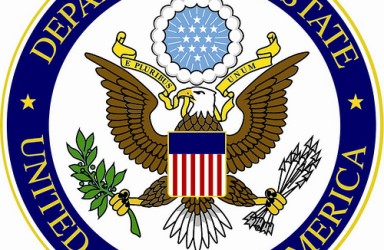On International Sponsorship
A relationship between international actors based on sponsorship differs from classical notions of clientelism and soft power, and is critical of exclusively statist conceptions of international politics. Sponsorship, I argue, becomes a mutual determinant and accelerator of globalisation.
Rethinking Republican Foreign Policy
The 2008 election was not a fluke. The days of Republican advantage on foreign and security affairs are over. The Democrats have learned to talk tougher on defense matters and to appoint Republicans and moderate Democrats to the senior posts. The Democrats now treat military preparedness, including Ronald Reagan’s missile defense, like the Republicans treat Social Security —with the self-preserving respect accorded electrified third rails.
Culture and Global Environmental Governance: Harnessing the Power of Habits
Cultural dynamics reside at the heart of global environmental governance. The politics of the environment is – alongside questions of distribution/justice and physical sustainability – always a matter of meaning and purpose. And this should not come as a surprise.
European Parliament Turns to the Right
The dramatic success of Right parties, particularly Radical Right parties, in the recent European Parliament election indicates that voters are responding to insecurity related to the global economic crisis and immigration. European Parliament elections often act as a referendum on domestic politics, but they are also indicative of trends across Europe.
Iran shaken by electoral earthquake
This presidential election is like an earthquake which sets new limits for political factionism in Iran and without any doubt, this earthquake will be followed by many aftershocks shaking the ruling structure in the Islamic State.
‘Smart Power’: A change in U.S. diplomacy strategy
Smart power ‘is a concept that underscores the necessity of a strong military, but also invests heavily in alliances, partnerships, and institutions at all levels to expand American influence and establish the legitimacy of American action.’ More plainly, smart power is a combination of both hard and soft power approaches to diplomacy.
Iran has lost the battle of global public opinion
The current political crisis in Iran and the ban on foreign media has proved that modern technology is challenging the monopoly of information management by the state. Today, modern technology is acting as an alternative instrument to expose matters, which the regime prefers to hide from the outside world.
The genie may not go back in the bottle
The Iranian leadership understands the dire straits it is in and fully appreciates it must start addressing the rampant inflation, unemployment and the acute need for direct foreign investment in the oil and gas industry. The chances are that the timing is right, for once, to get the current regime to respond honestly and transparently.
BLOOD BROTHERS
To understand American policy better, I suggest you consult a recent, very well written and argued paper by Stephen Peter Rosen of Harvard on why we Americans are less the peace-loving people we often claim to be.
The Iranian women’s rights movement and the election crisis
Images of women in chador and rusari (modest Islamic dress) beaten up by security forces in the streets of Tehran and other cities in Iran have dominated the news lately. Neda’s image and her brutal death in Tehran on Saturday June 20th in a protest demanding the annulment of the results of 10th presidential election in Iran has brought women’s active role in the post-election crisis into light.




